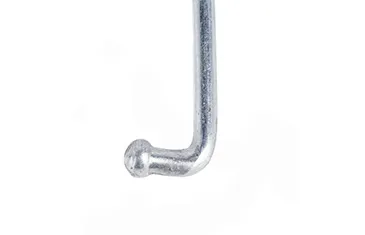-
 Phone:
Phone: -
 Email:
Email:

Understanding Rebar Tie Wire Applications and Benefits in Construction Projects
Understanding Rebar Tie Wire Essential for Construction Integrity
When it comes to construction, ensuring the structural integrity of reinforced concrete structures is paramount. One of the often-overlooked but crucial components aiding in this integrity is rebar tie wire. Rebar, or reinforcing bar, is used to reinforce concrete, providing tensile strength and preventing cracking. As rebar is laid within the formwork, it is imperative that these bars are held securely in place; this is where rebar tie wire comes into play.
What is Rebar Tie Wire?
Rebar tie wire is a type of wire specifically designed to secure and connect rebar in concrete construction. Generally made from low-carbon steel, this wire is both flexible and durable. It allows construction workers to tie rebars together efficiently, ensuring the bars maintain their position and alignment during the pouring of concrete. The wire itself typically comes in coils, making it easy to handle and use on construction sites.
Types of Rebar Tie Wire
There are primarily two types of rebar tie wire used in construction annealed wire and galvanized wire.
1. Annealed Wire This type of tie wire has been treated to make it softer and more malleable. It is particularly easy to twist and bend, making it ideal for tying rebar in numerous configurations. The flexibility of annealed wire helps workers to secure rebar in tight spaces and intricate layouts.
2. Galvanized Wire Galvanized tie wire has a protective coating that makes it resistant to corrosion. This is especially important in environments where the rebar may be exposed to moisture or chemicals that can lead to rust and deterioration. Using galvanized wire ensures a longer lifespan for the rebar assembly, contributing to the overall durability of the concrete structure.
Importance of Rebar Tie Wire in Construction
rebar tie wire

The importance of rebar tie wire cannot be overstated. Here are several reasons why it plays a crucial role in construction
1. Structural Stability Properly tied rebar creates a stable framework that can withstand the forces acting upon it during and after concrete placement. Without adequate ties, the rebar may shift, leading to weak spots in the concrete.
2. Ease of Handling Using tie wire makes it easier for workers to manage and manipulate rebar on site. Once the rebar is tied together, it forms a cohesive structure that can be moved as a unit, simplifying the installation process.
3. Cost-Effectiveness Though tie wire might seem like a minor component in construction, it is an economical solution that ensures the overall integrity of larger and more expensive materials like rebar and concrete. By investing in rebar ties, contractors can help prevent costly repairs and issues down the line.
4. Safety In safety-sensitive environments, secure rebar is essential to prevent accidents during the pouring of concrete. Loose or improperly placed rebar can pose risks to workers on-site, making rebar tie wire an important safety measure.
Application of Rebar Tie Wire
Rebar tie wire is used in various applications across different construction projects. It's commonly used in residential buildings, bridges, highways, and commercial buildings where reinforced concrete structures are required. The versatility of rebar tie wire allows it to be adjusted to any configuration, making it an indispensable tool for contractors.
Conclusion
In conclusion, rebar tie wire may be a simple tool, but its importance in the construction industry cannot be underestimated. By ensuring that rebar is properly tied and secure, construction professionals can maintain the structural integrity of buildings and other projects. Whether through the use of annealed or galvanized wire, the effective application of rebar tie wire results in safer, more durable, and cost-effective constructions. As the industry evolves, understanding the role of such materials will continue to be crucial for achieving excellence in construction practices.
-
Wire Mesh for Every Need: A Practical SolutionNewsJul.25,2025
-
Steel Fences: Durable, Secure, and Stylish OptionsNewsJul.25,2025
-
Roll Top Fencing: A Smart Solution for Safety and SecurityNewsJul.25,2025
-
Cattle Farm Fencing Solutions for Maximum SecurityNewsJul.25,2025
-
Affordable Iron Binding Wire SolutionsNewsJul.25,2025
-
Affordable Galvanized Wire SolutionsNewsJul.25,2025
-
Wire Hanger Recycling IdeasNewsJul.25,2025








